BYD Seal vs VW Caddy Compact Van – Differences & prices compared
Compare performance, boot space, consumption and price in one view.
Find out now: which car is the better choice for you – BYD Seal or VW Caddy Compact Van?
The BYD Seal (Sedan) comes with a Electric engine and Automatic transmission. In comparison, the VW Caddy Compact Van (Cargo Van) features a Petrol, Diesel or Plugin Hybrid engine with Manuel or Automatic transmission.
When it comes to boot capacity, the BYD Seal offers 400 L, while the VW Caddy Compact Van provides – depending on how much space you need. If you’re looking for more power, decide whether the 530 HP of the BYD Seal or the 150 HP of the VW Caddy Compact Van suits your needs better.
In terms of consumption, the values are 15.40 kWh per 100 km for the BYD Seal, and 0.50 L for the VW Caddy Compact Van.
Price-wise, the BYD Seal starts at 40300 £, while the VW Caddy Compact Van is available from 25800 £. Compare all the details and find out which model fits your lifestyle best!
BYD Seal
The BYD Seal represents a sleek fusion of innovative technology and stylish design, setting it apart in the competitive electric vehicle market. With its aerodynamic silhouette and premium interior finishes, the car offers a driving experience that is both comfortable and exhilarating. Enthusiasts are particularly impressed by the seamless integration of advanced features that prioritise safety and convenience.
details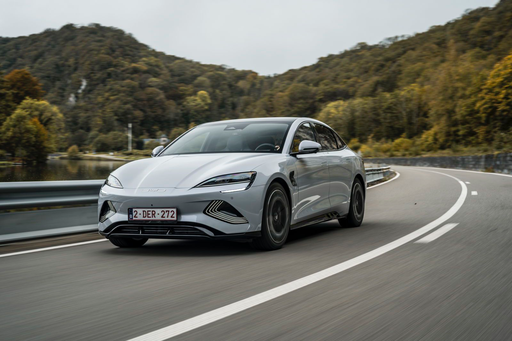 @ press.bydauto.be
@ press.bydauto.be
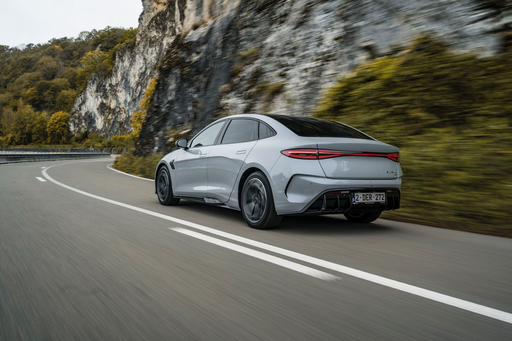 @ press.bydauto.be
@ press.bydauto.be
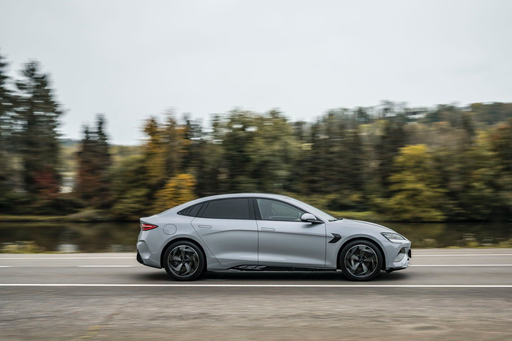 @ press.bydauto.be
@ press.bydauto.be
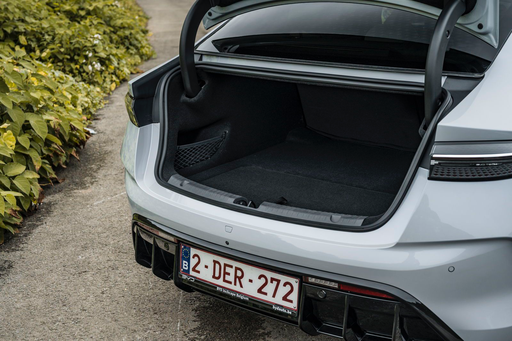 @ press.bydauto.be
@ press.bydauto.be
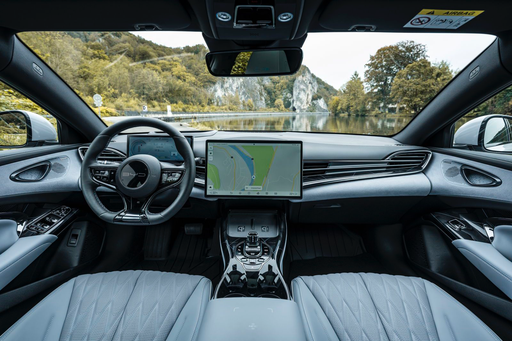 @ press.bydauto.be
@ press.bydauto.be
VW Caddy Compact Van
The VW Caddy small van is a versatile option for those seeking a practical and efficient transporter. With its sleek design and innovative features, it caters well to both business needs and everyday convenience. The interior is thoughtfully designed, offering comfort and ample space for cargo or passengers, making it a reliable choice for various tasks.
details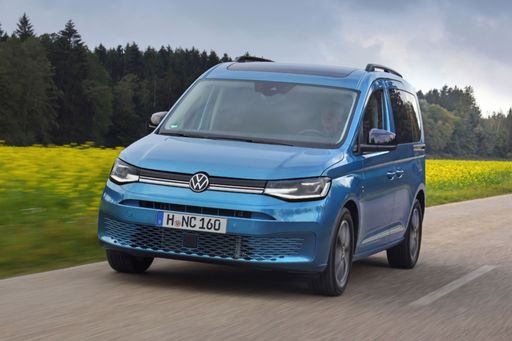 @ vwpress
@ vwpress
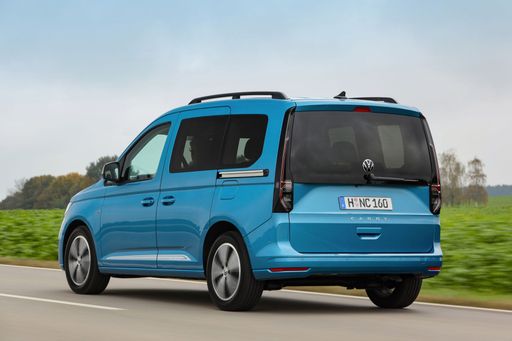 @ vwpress
@ vwpress
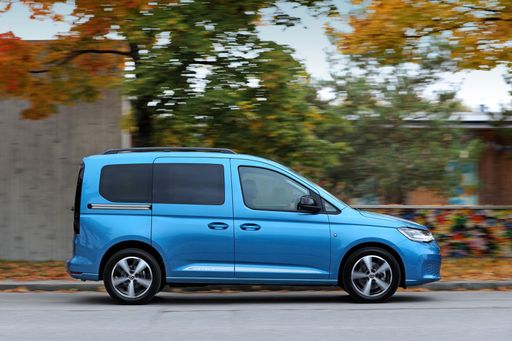 @ vwpress
@ vwpress
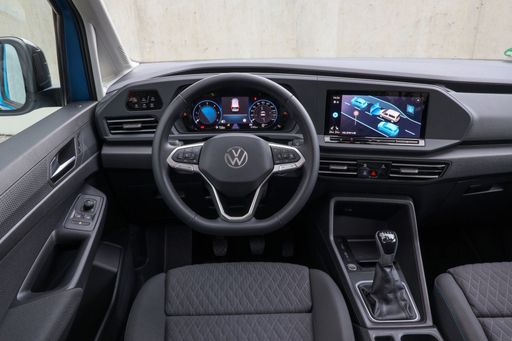 @ vwpress
@ vwpress

|

|
|
|
|
Costs and Consumption |
|
|---|---|
|
Price
40300 - 43700 £
|
Price
25800 - 42300 £
|
|
Consumption L/100km
-
|
Consumption L/100km
0.5 - 6.8 L
|
|
Consumption kWh/100km
15.4 - 18.2 kWh
|
Consumption kWh/100km
-
|
|
Electric Range
460 - 570 km
|
Electric Range
117 - 120 km
|
|
Battery Capacity
-
|
Battery Capacity
19.70 kWh
|
|
co2
0 g/km
|
co2
11 - 154 g/km
|
|
Fuel tank capacity
-
|
Fuel tank capacity
50 L
|
Dimensions and Body |
|
|---|---|
|
Body Type
Sedan
|
Body Type
Cargo Van
|
|
Seats
5
|
Seats
2
|
|
Doors
4
|
Doors
4 - 5
|
|
Curb weight
1907 - 2185 kg
|
Curb weight
1442 - 1818 kg
|
|
Trunk capacity
400 L
|
Trunk capacity
-
|
|
Length
4800 mm
|
Length
4500 - 4853 mm
|
|
Width
1875 mm
|
Width
1855 mm
|
|
Height
1460 mm
|
Height
1819 - 1823 mm
|
|
Payload
446 - 473 kg
|
Payload
628 - 759 kg
|
Engine and Performance |
|
|---|---|
|
Engine Type
Electric
|
Engine Type
Petrol, Diesel, Plugin Hybrid
|
|
Transmission
Automatic
|
Transmission
Manuel, Automatic
|
|
Transmission Detail
Reduction Gearbox
|
Transmission Detail
Manual Gearbox, Dual-Clutch Automatic
|
|
Drive Type
Rear-Wheel Drive, All-Wheel Drive
|
Drive Type
Front-Wheel Drive, All-Wheel Drive
|
|
Power HP
231 - 530 HP
|
Power HP
102 - 150 HP
|
|
Acceleration 0-100km/h
3.8 - 7.5 s
|
Acceleration 0-100km/h
-
|
|
Max Speed
180 - 220 km/h
|
Max Speed
175 - 186 km/h
|
|
Torque
360 - 670 Nm
|
Torque
220 - 320 Nm
|
|
Number of Cylinders
-
|
Number of Cylinders
4
|
|
Power kW
170 - 390 kW
|
Power kW
75 - 110 kW
|
|
Engine capacity
-
|
Engine capacity
1498 - 1968 cm3
|
General |
|
|---|---|
|
Model Year
2023 - 2025
|
Model Year
2024
|
|
CO2 Efficiency Class
A
|
CO2 Efficiency Class
E, B
|
|
Brand
BYD
|
Brand
VW
|
BYD Seal
The BYD Seal: An Electrifying Presence on the Road
Amidst the growing popularity of electric vehicles (EVs), the BYD Seal stands out as a compelling choice. With its sleek saloon design and a plethora of cutting-edge features, this model holds its own in the competitive market of eco-conscious automobiles.
Technical Specs that Speak Volumes
The BYD Seal comes in two key variants, each offering a distinct driving experience yet retaining a common emphasis on performance and efficiency. The power output ranges from a robust 313 PS to an exhilarating 530 PS, ensuring that whether you choose the rear-wheel drive or the all-wheel-drive option, you won't be short of thrills.
Performance enthusiasts will also appreciate the remarkable acceleration capabilities; the Seal can go from 0 to 100 km/h in as little as 3.8 seconds. Complementing its acceleration is its astounding maximum torque, reaching up to 670 Nm, making it adept at handling various driving conditions.
Efficiency Meets Innovation
BYD has engineered the Seal to optimise energy consumption without compromising on performance. The car boasts a commendable energy consumption range of 16.6 - 18.2 kWh/100km, reflecting its efficiency-focused design. Coupled with an impressive electric range of up to 570 km, the Seal is poised for longer journeys without frequent recharging interruptions.
Design and Comfort
The BYD Seal's aesthetic appeal is underscored by its sleek saloon body and precise dimensions: 4800 mm in length, 1875 mm in width, and standing at a height of 1460 mm. These dimensions create a dynamic yet spacious presence on the road, ensuring both an aerodynamic performance and a comfortable interior for up to five passengers.
Inside, the Seal is designed with driver and passenger comfort in mind, featuring a well-crafted interior and advanced technology to enhance the driving experience. The boot offers 400 litres of space, catering to practical needs without compromising on style.
Innovative Features for a Modern Drive
The Seal doesn’t just rely on its electric credentials to make an impact. BYD integrates a host of modern technologies and safety features, ensuring that the driving experience is both innovative and secure. The inclusion of a single-speed reduction gear contributes to a smooth driving experience, enabling efficient transitions in speed.
Safety is further assured with the Seal's high CO2 efficiency rating of class A, underlining its efficacy as a sustainable mode of transport that does not contribute to emissions. Given these progressive features, it's clear that the BYD Seal aligns with the evolving expectations of modern drivers looking for an eco-friendly yet high-performing vehicle.
Conclusion: Future-Ready Efficiency
With a competitive price range starting from €44,990, the BYD Seal represents excellent value for those seeking a blend of performance, efficiency, and modern technology. As sustainable transportation becomes a priority globally, the Seal positions itself as a pioneering force in the electric vehicle market, offering a future-ready driving solution that can meet the needs of today's discerning car buyers.
VW Caddy Compact Van
Compact Versatility: A Closer Look at the VW Caddy Compact Van
The VW Caddy Compact Van has long been a staple in the commercial vehicle sector, offering a versatile and robust solution for professionals and businesses alike. Combining impressive technical capabilities with innovative features, the latest iteration of the Caddy Compact Van continues to uphold its legacy as a dependable and efficient vehicle.
Engine Performance and Efficiency
At the heart of the VW Caddy Compact Van lies an efficient and powerful engine range designed to meet varying performance needs. The van comes with several engine options, including economical yet robust diesel engines and responsive petrol variants. These engines have been engineered to optimize fuel efficiency without compromising on power, making the van a cost-effective option for urban deliveries and long highway journeys alike.
Innovative Design and Practicality
The VW Caddy Compact Van features a meticulously crafted design that focuses on practicality and space utilization. Its compact dimensions are perfect for navigating busy city streets, while the interior offers a surprisingly spacious cargo area. This innovative design ensures that every inch of space is used effectively, maximizing cargo capacity without affecting driver and passenger comfort.
Advanced Technology for Modern Needs
Embracing modern technology, the VW Caddy Compact Van is equipped with a host of intelligent systems aimed at enhancing safety and convenience. The van features advanced driver-assistance systems, including adaptive cruise control, park assist, and a rear-view camera. These features contribute to a safer driving experience, whether maneuvering through narrow city streets or handling larger loads on the highway.
Comfort and Convenience Inside
Inside, the VW Caddy Compact Van presents a blend of comfort and practicality. The ergonomic design ensures that all controls are within easy reach, allowing the driver to focus on the road. Optional infotainment systems and connectivity features, such as smartphone integration and Bluetooth connectivity, provide a seamless driving experience, turning the Caddy into a mobile office on wheels.
Environmental Responsibility
In light of increasing environmental awareness, the VW Caddy Compact Van has been designed to minimize its ecological footprint. The efficient engine options produce low CO2 emissions while adhering to stringent environmental standards. This commitment to environmental responsibility makes the Caddy a smart choice for businesses looking to reduce their carbon footprint.
Conclusion: A Dependable Partner
In conclusion, the VW Caddy Compact Van remains a leader in its class, offering a dynamic combination of performance, efficiency, and practicality. Its innovative features and advanced technology cater to the diverse needs of modern businesses, ensuring the Caddy is not just a vehicle, but a reliable partner on the road. Whether used for transporting goods or as a mobile workshop, the VW Caddy Compact Van continues to deliver on its promise of versatility and dependability.
Which drive types are available for the BYD Seal?
Available as Rear-Wheel Drive or All-Wheel Drive.
The prices and data displayed are estimates based on German list prices and may vary by country. This information is not legally binding.
